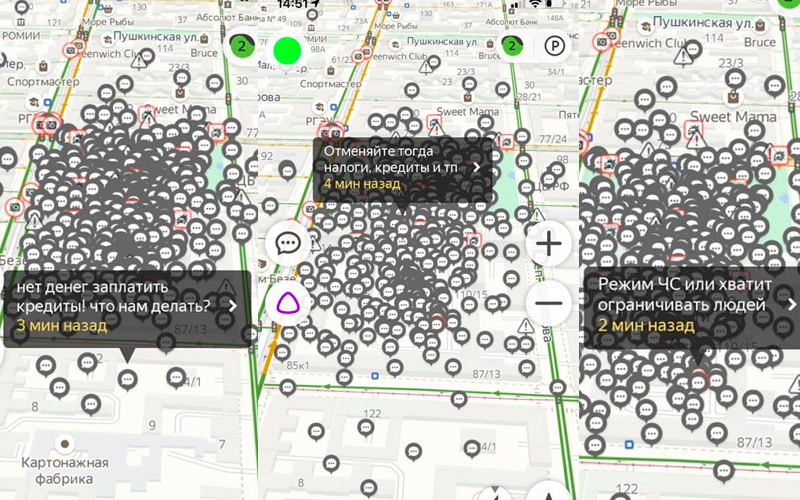Amidst growing limitations on individual’s rights to protest in recent years, protesters in Russia are finding new ways to oppose the government. In light of strict self-isolation policies and financial hardships faced by many citizens during the COVID-19 pandemic, some Russians are pinning their locations en masse in prominent locations on navigation apps like Yandex and writing protest slogans in the comments against the government’s policies. These “rallies in absentia” mark another novel way Russians are circumventing restrictions against mass protests. Nevertheless, digital giants like Yandex often collaborate with the government, handing over private user data to security services.

So what?
At the nexus of technology and governance, Russia is navigating unchartered territory in sanctioning both digital mass gatherings and individual digital speech. Russians have found ways to circumvent laws preventing mass protests and “online disrespect” laws by gathering online and speaking in code. How will COVID-19 affect digital legislation in Russia?
With the increase in “rallies in absentia”, can a post-COVID-19 political movement survive purely online? Will autocratic regimes devolve into greater technocratic control and increase surveillance?
Additionally, if more regulation is being placed on digital speech, tech companies must make decisions about how they choose to protect both user data and user identity in a digitally safe spaces. Will we see greater collaboration between tech companies and security services? In autocratic regimes, will tech companies need to make choices between allying with powerful governments or the people?
Signal spotter: Joy Green
Photo by Mike Kononov on Unsplash
Sources
-
 Russians launch mass virtual protests using satnav application https://globalvoices.org/2020/04/20/russians-launch-mass-protests-using-satnav-application/
Russians launch mass virtual protests using satnav application https://globalvoices.org/2020/04/20/russians-launch-mass-protests-using-satnav-application/ -
 Kremlin's new law against 'online disrespect' proves hard to implement https://globalvoices.org/2019/07/16/kremlins-law-against-online-disrespect-implementation/
Kremlin's new law against 'online disrespect' proves hard to implement https://globalvoices.org/2019/07/16/kremlins-law-against-online-disrespect-implementation/
















